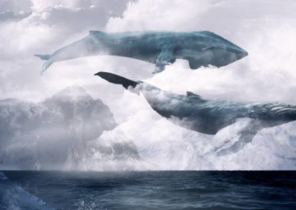Siberia is usually associated bitter cold, but now mercury quickly climbs the thermometer up. In Siberia is 30-degree heat — even North of the Arctic circle.
A researcher at the Finnish meteorological Institute Mika Rantanen (Rantanen Mika) calls the Siberian weather is atypical. And although summer in Siberia sometimes very warm, 30 degrees for may — too much.
“Of course, 30 degrees North of the Arctic circle is an exceptional situation,” — says Rantanen.
In Siberia and the winter was warm.
“This winter in Russia and Siberia was record warm, and now the heat is stored in the form of heat. There is a high probability that summer in Siberia will be a record hot,” says Rantanen.
A false start in the melting of sea ice
For many a warm summer — good news, but nature, accustomed to other conditions, is a real challenge. Now the exceptional heat wave impact on the sea ice of the Kara sea.
“Summer melting of sea ice began about a month earlier than normal. Now the sea ice is exceptionally thin, and because of the heat, he sure will begin to melt earlier than usual.”
Typically, the melting of ice in the Kara sea starts in June-July. A record early ice melting, according to Rantanen, does not Bode well.
Bad trend
The state of sea ice in the Arctic, researchers concerned about the climate for a long time. It was believed that the winter sea ice has increased, but the overall picture remains alarming. In March, researcher Jennifer Francis (Jennifer Francis) informed NASA that the condition of the Arctic ice is still worse than the norm.
“Reasons to expect that the situation will improve, no. It is believed that the trend will become worse”, — said Francis in the spring.
Rantanen from the Finnish meteorological Institute also considers early heat wave in Siberia is a bad sign. Sea ice in the Arctic is melting faster than usual, from the Siberian soil that has the permafrost, methane comes out.
“This is a clear consequence of the heat. Sea ice begins to melt earlier than usual, from wetlands; of methane,” says Rantanen.
It seems that this week in the North of Siberia will still be hot. Then she will shift to the East and from the West will cool the air. How long will this weather, and whether it is time to affect the melting of ice and release of methane is still unknown.
“There is still all summer. Who knows what will happen!”







